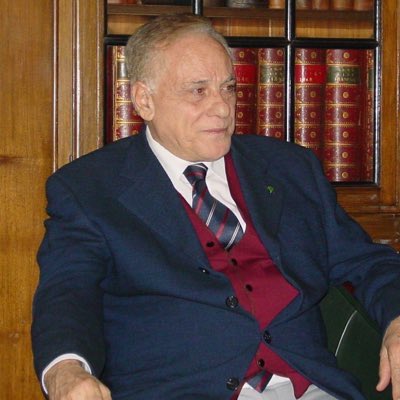The Decline of Iranian Influence in Lebanon
Etienne Sakr (Abu Arz)/November 24, 2024
(Translated, summarized, and quoted from Arabic by Elias Bejjani, LCCC Publisher & Editor)
أُفول النفوذ الإيراني في لبنان
اتيان صقر- أبو أرز/24 تشرين الثاني/2024
ما إن نجح الجيش الإسرائيلي في تنفيذ ضرباتٍ نوعية أفضت إلى تصفية قادة “حزب الله” من الصف الأول والثاني والثالث في سبتمبر الماضي، حتى بدأت تداعيات هذه الضربات تثير قلق النظام الإيراني بحيث شعر المسؤولون في طهران أن لبنان، الذي طالما اعتبروه ساحة نفوذ استراتيجي لهم، بدأ يبتعد عنهم و يتفلّت من قبضتهم الحديدية.
استجابة لهذا الوضع الحرج، تحرك النظام الإيراني بسرعة، وأرسل كبار مسؤوليه في زيارات متتالية إلى لبنان، البداية كانت مع وزير الخارجية عباس_عرقجي، الذي حمل رسالة دعم واضحة “لحزب الله “في محاولة لاحتواء الأزمة. تَلا ذلك زيارة رئيس البرلمان محمد باقر قاليباف الذي أكد على “عمق العلاقة الاستراتيجية” بين إيران والحزب. ولم يتوقف الأمر عند هذا الحد، إذ أوفد المرشد الأعلى علي خامنئي مستشاره الأول علي لاريجاني إلى بيروت، في خطوة عكست مدى خطورة الوضع على النفوذ الإيراني في لبنان والمنطقة.
هدفت هذه الزيارات المتتالية إلى تحقيق عدة أهداف، أهمها رفع معنويات من تبقى من كوادر هذا الحزب وعناصره التي تزعزعت بعد تلك الضربات الإسرائيلية القاتلة. كما تضمنت محاولة لإعادة تنظيم صفوفه وترتيب أوضاعه الداخلية، بما في ذلك تأكيد الولاء لإيران وقيادتها. لكن على الرغم من كل هذه الجهود، لم تأتِ النتائج على مستوى التوقعات، فقد بدا واضحاً أن الضربات القاصمة التي تلقاها الحزب أدّت إلى خلخلة في بنيته الداخلية وعلاقاته مع البيئة الحاضنة له في لبنان.
إضافة إلى ذلك، تصاعدت الانتقادات الداخلية والخارجية تجاه “حزب الله” حيث بدأ الشعب اللبناني يعبر عن استيائه من سياساته التي جعلت البلاد رهينةً للصراعات الإقليمية، وبدأت بيئتُه الحاضنة تعبّر عالياً عن سخطها لفداحة الخسائر التي مُنيت بها على صعيد الأرواح والممتلكات والنزوح غير المسبوق لعائلاتها الذي فاق عددها المليون نازحاً.
وبالرغم من محاولات إيران المستميتة لاحتواء الموقف، إلا أن المؤشرات توحي بأن الوضع خرج عن السيطرة، وأن حزب الله يواجه أزمة وجودية قد يصعب التغلب عليها في المستقبل القريب والبعيد.
وعليه، فإن لبنان، الذي طالما كان على مرّ التاريخ مقبرةً لكلّ من حاول احتلاله أو السيطرة عليه، يُثبت مرة أخرى أن إرادة شعبه أقوى من أي قوة خارجية. لقد رحل كل الغزاة وبقي هو صامداً شامخاً متأهباً للنهوض من تحت الركام رغم كل المحن و النكبات. واليوم، ورغم كل محاولات الهيمنة والسيطرة الإيرانية، فإن لبنان يبعث برسالة واضحة للعالم أجمع مفادها أن هذا الوطن قد يضعف أحياناً لكنه لا يسقط، يلتوي ولا ينكسر وكل من يحاول إخضاعَه مصيرُه الزوال.
لبيك_لبنان
اتيان صقر – أبو أرز
حراسالارز حركة القومية اللبنانية
The Decline of Iranian Influence in Lebanon
Etienne Sakr (Abu Arz)/November 24, 2024
(Translated, summarized, and quoted from Arabic by Elias Bejjani, LCCC Publisher & Editor)
The Israeli army’s precision strikes last September, which successfully eliminated Hezbollah’s first, second, and third-tier leadership, have triggered significant repercussions for the Iranian regime. These blows marked a turning point, as Tehran began to sense that Lebanon—long considered a critical arena for Iranian influence—was slipping from its grasp.
In response, the Iranian regime acted swiftly. High-ranking officials embarked on a series of visits to Lebanon, beginning with Foreign Minister Abbas Araqchi, who delivered a clear message of unwavering support for Hezbollah in an effort to contain the crisis. This was followed by Parliament Speaker Mohammad Bagher Qalibaf, who emphasized the “depth of the strategic relationship” between Iran and Hezbollah. To underline the urgency, Supreme Leader Ali Khamenei dispatched his senior advisor, Ali Larijani, to Beirut. These visits underscored the severity of the challenge to Iran’s influence in Lebanon and the broader region.
The visits aimed to achieve several objectives:
*Boosting morale among Hezbollah’s remaining cadres and elements, shaken by the devastating Israeli strikes.
*Reorganizing ranks and reaffirming loyalty to Iran’s leadership.
*Containing internal fallout and projecting strength despite evident vulnerabilities.
However, these efforts have fallen short. The strikes have not only destabilized Hezbollah’s internal structure, but also eroded its support within its supportive environment in Lebanon. Criticism of Hezbollah, both domestically and internationally, has surged. The Lebanese people increasingly resent the Hezbollah’s policies, which have plunged the country into regional conflicts. Even Hezbollah’s own supportive base is expressing outrage over the heavy toll in lives, property, and the unprecedented displacement of more than one million Lebanese families.
Despite Tehran’s desperate attempts to salvage the situation, all signs point to an existential crisis for Hezbollah—one that may prove insurmountable in both the short and long term.
Lebanon, a nation historically known as a graveyard for occupiers, once again demonstrates the resilience and strength of its people. Time and again, invaders have come and gone, but Lebanon has remained standing, defiant and unyielding. Despite the hardships imposed by Iranian domination and Hezbollah’s hegemony, the Lebanese people are sending a clear and powerful message: This nation may weaken but will never fall; it may bend but will never break. Whoever seeks to subjugate Lebanon will inevitably fail.
Long Live Lebanon.
Summary of the Statement
Etienne Saqr (Abu Arz) argues that Iran’s grip on Lebanon, particularly through Hezbollah, has weakened significantly due to recent Israeli strikes. Despite Tehran’s efforts to restore Hezbollah’s influence, the party faces mounting internal and external challenges. Lebanese citizens are rejecting Hezbollah’s policies, and even its supportive base has suffered severe losses. Abu Arz concludes that Lebanon will ultimately prevail, as its people’s will remains stronger than any external force.
Key Points:
Israeli strikes have critically weakened Hezbollah.
Iran’s efforts to restore its proxy’s position have failed.
Lebanese people increasingly reject Hezbollah’s role in regional conflicts.
Lebanon’s resilience ensures it will overcome external interference.




















